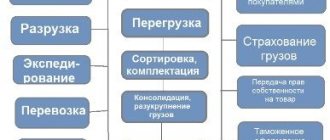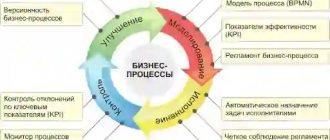Logistics is a strategic direction of the company’s activities, which allows it to significantly reduce costs in the areas of procurement, production and delivery, eliminate risks and stand out among competitors. As a result of competent systematization and optimization of key business processes, the conclusion of profitable transactions and the attraction of new clients is ensured. Today we will look at the definition and types of logistics, its tasks in business, and at the end of the article we will look at how to choose the right transport and logistics company.
Definition of Logistics
Turning to world experience, we can safely say that the use of logistics significantly increases the efficiency of doing business.
In successful world-famous projects (Ford Motors, Honda, Coca-Cola, IBM), logistics has been a main component from the first days of their existence.
The term is of Greek origin and means – to reason, to calculate. This direction is considered as a tool for ensuring high competitiveness and reducing company losses to a minimum.
To achieve prosperity, entrepreneurs strive to anticipate and ensure that consumer needs are fully satisfied. Today, the “golden rule” of business is considered to be a combination of three “n”s:
- required action;
- right time;
- Right place.
The use of a logistics strategy helps to achieve an ideal result. The key function of logistics is to ensure the competitive attractiveness of the company in the market.
This happens through the management of material, information and financial flows in compliance with six principles:
- Cargo that is in demand among buyers.
- Excellent quality product.
- Required amount.
- Timely delivery.
- Arriving at the right place.
- Minimum company expenses.
To summarize, we can say that if a product that satisfies a consumer need is delivered to the right place in a timely manner, the logistics task can be considered completed.
The diversity of logistics and the profession of logistician
Logistics is the science of optimal management of discrete and continuous flows in the production of goods and services.
Any product we need is associated with a huge number of business-to-business (B2B) and business-to-customer (B2C) logistics fragments. Logistics manages everything from a variety of ore plants or farmland, production chains to store shelves, points of delivery of orders from online stores or a courier who comes to you. The final price is influenced by the entire set of supply chains involved in the production of goods or services throughout their entire life cycle. Inconsistency in the interaction of any fragments leads to production delays, increased costs, broken contracts, and reputational losses.
Knowledge of logistics is possession of the most important tool for competition, profit generation and sustainable development of your company.
In Imperial Byzantium, there were “logistics” at the court, whose task was to manage the distribution of food. , a generally accepted definition of logistics has not yet . And this is becoming more and more difficult to do, since every year more and more new areas of application of the principles of logistics appear and they all must be compatible with the general definition. Many of the areas are becoming independent logistics disciplines.
An analysis of dozens of existing definitions shows that most of them describe a specific applied logistics area (discipline). And this ever-growing set of definitions only confirms the expansion of logistics into all aspects of the life cycle of the production of goods and services . Along with this, a fairly large list of classical disciplines has developed.
Principle of operation
To ensure maximum business efficiency, the activities of logistics technologies are aimed at ensuring the following processes:
- procurement management – allows you to identify the best conditions for the company;
- optimization of production process timing;
- monitoring of warehouse reserves: timely identification of illiquid products and reduction of inventories;
- timely delivery for product sales;
- warehousing;
- ensuring transportation at minimal cost.
It has been proven that with proper organization of the logistics process, the time for delivering the optimal amount of products to the consumer is reduced by 10-40%, which helps increase profits by 5-15%.
The connecting link in the logistics chain is the logistics manager, who solves the following tasks:
- selects premises for storing goods;
- selects the type of vehicle for moving cargo;
- provides packaging and labeling of goods;
- finds out the desired time and place of delivery;
- selects a rational route and drivers;
- compiles a client base;
- forms group orders.
According to experts, if with the help of logistics it is possible to reduce costs by 1%, the company’s profit will increase by 10%.











